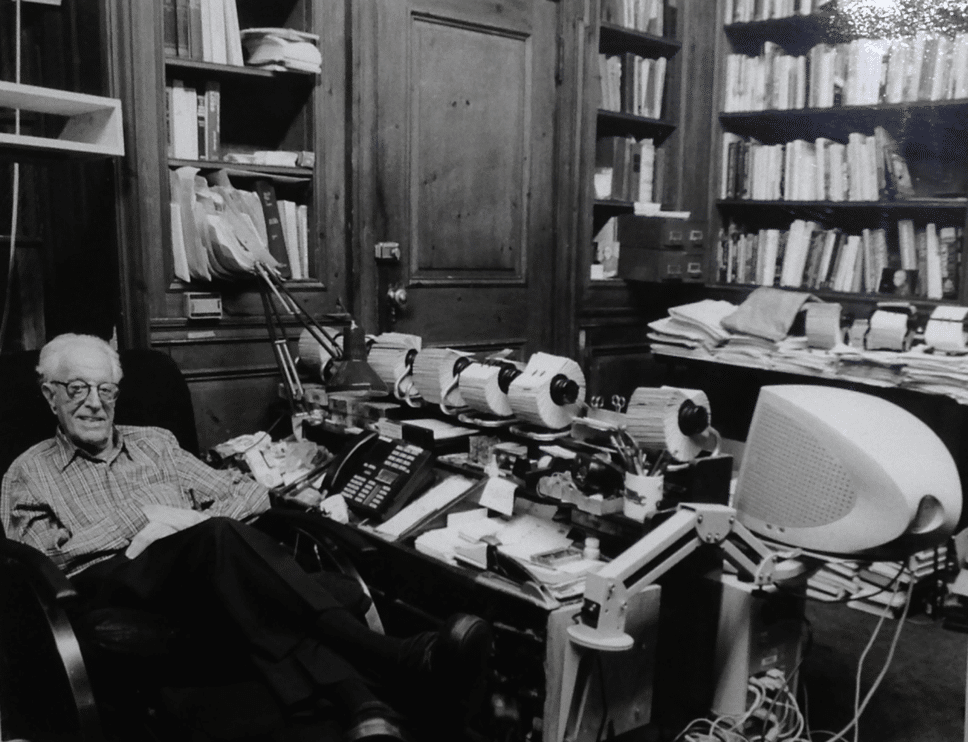REBT Theory & Practice Explained By Dr. Albert Ellis
Fun as Psychotherapy (A Humorous but Accurate Depiction of REBT Theory and Practice)

Albert Ellis Quotes
Shame is always wrong because shame means I did the wrong thing, which may be correct, but I’m no damned good as a human for doing it, which is totally incorrect.
Instead of telling myself that frustrating conditions absolutely must not occur in my life, I’ll convince myself that these conditions must exist when they do exist, that I can cope with them, that I can try to change them, and that I can accept it though not like it, when I cannot for the present change them.
When you think you also feel and behave. When you feel you also think and behave, and when you behave you also think and feel.
I think the future of psychotherapy and psychology is in the school system. We need to teach every child how to rarely seriously disturb himself or herself and how to overcome disturbance when it occurs.
If something is irrational, that means it won’t work. It’s usually unrealistic.
People don’t just get upset. They contribute to their upsetness.
Rational beliefs bring us closer to getting good results in the real world.
Self-esteem is the greatest sickness known to man or woman because it’s conditional.
The best years of your life are the ones in which you decide your problems are your own. You do not blame them on your mother, the ecology, or the president. You realize that you control your own destiny.
By striving for personal happiness, you will almost inevitably become a person with whom others can more lovingly and beneficially relate. When you really go after what you want in life and are determined to get something good going for yourself (and possibly for others), you have something special and unique to offer others – particularly those who would share love with you. Your very self-interested activity give them some resources to sink their teeth into: either in your doings, in your work, or in your substantive self.
You largely constructed your depression. It wasn’t given to you. Therefore, you can deconstruct it.
To help people gain unconditional self-acceptance and to believe that they are okay or are good just because they exist had better be taught to all children in the course of their schooling, from early childhood onward.
Whenever obnoxious or unpleasant activating events occur in people’s lives, they have a choice of making themselves feel healthily and self-helpingly sorry, disappointed, frustrated, and annoyed, or making themselves feel unhealthily and self-defeatingly horrified, terrified, panicked, depressed, self-hating, and self-pitying.
Practically all humans are born very gullible or teachable, especially in the course of their childhood, and consequently they accept many kinds of ideas, feelings, and actions that their parents and other caretakers tell them are beneficial and often reward them for believing, feeling, and behaving.
Although emotions may sometimes exist without thought, it appears to be almost impossible to sustain an emotional outburst without bolstering it by repeated ideas.
No, our wills are not completely free, nor are we completely governed by our heredity and environment. We seem to be born and reared with some degree of choice, agency, or self-control but have to work at accepting its limitations and push ourselves to use it adequately.
If people stopped looking on their emotions as ethereal, almost inhuman processes, and realistically viewed them as being largely composed of perceptions, thoughts, evaluations, and internalized sentences, they would find it quite possible to work calmly and concertedly at changing them.
It is the current philosophic and behavioral re-traumatizing that keeps the early disturbance alive in the present.
The emotionally mature individual should completely accept the fact that we live in a world of probability and chance, where there are not, nor probably ever will be, any absolute certainties, and should realize that it is not at all horrible, indeed—such a probabilistic, uncertain world.
The emotionally sound person should be able to take risks, to ask himself what he really would like to do in life, and then to try to do this, even though he has to risk defeat or failure. He should be adventurous (though not necessarily foolhardy); be willing to try almost anything once, just to see how he likes it; and look forward to some breaks in his usual life routines.
In spite of the hassles and adversities mentioned, and in spite of my physical disabilities—among other things, I have had insulin-dependent diabetes for 47 years, with its innumerable problems and difficulties—I keep working to develop REBT and to spread it around the world. My unconditional life-acceptance (ULA) and my high frustration tolerance (HFT) in this respect have enabled me to write more than 75 books, to publish more than 700 articles, to see thousands of individual and group therapy clients, to give hundreds of lectures and workshops, to train almost innumerable therapists, and to do various other nefarious things. How do I do it? With REBT theory in mind, I follow one of its main rules incessantly: PYA—push your ass. So far, my ass hasn’t worn out, though I admit I’ve fallen on it quite a few times.


